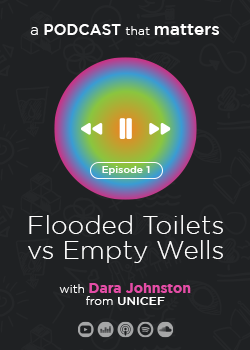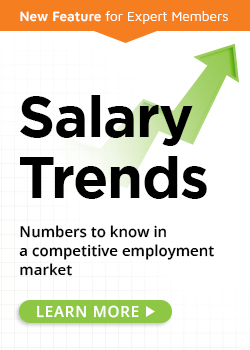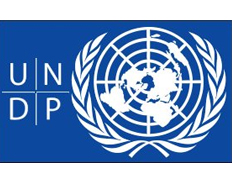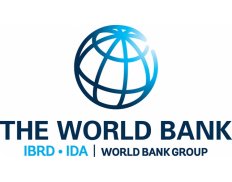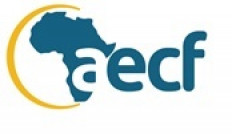
Terms of Reference for Consultancy Services for Automation Software for Micro, Small and Medium-sized Enterprises (MSMEs) in Kakuma-Kalobeyei Area – January 2024
Details
Description
Request for Proposal: Terms of Reference for Consultancy Services for Automation Software for Micro, Small and Medium-sized Enterprises (MSMEs) in Kakuma-Kalobeyei Area – January 2024
Job Title: Request for Proposal: Terms of Reference for Consultancy Services for Automation Software For Micro, Small And Medium-Sized Enterprises (MSMEs) In Kakuma-Kalobeyei Area – January 2024
Closing date: 31/01/2024
1. About AECF
The AECF is a leading African-owned and led development organisation that supports innovative enterprises in the agribusiness and renewable energy sectors with the aim of reducing rural poverty, promoting resilient communities and creating jobs. AECF has raised over US$ 400 million to provide catalytic funding and technical advisory support to enterprises that struggle to meet traditional risk-return standards for commercial investors. In just over a decade, we have supported over 400 tbusinesses in 26 countries in Sub-Saharan Africa, impacted more than 30 million lives, created over 27,000 direct jobs, and leveraged US $771 million in matching funds.
We surface and commercialize new ideas, business models and technologies designed to increase agricultural productivity, improve farmer incomes, expand clean energy access, reduce greenhouse gas emissions and improve resilience to the effects of climate change while also addressing the crosscutting themes of women, youth, and fragility. AECF is committed to working in frontier markets, fragile contexts, and high-risk economies where few mainstream financing institutions dare to go.
2. About Kakuma Kalobeyei Challenge Fund (KKCF)
The KKCF is a competitive financing mechanism for disbursing donor funding to incentivize for-profit companies, social enterprises, and local and refugee entrepreneurs to start or scale existing operations in the Kakuma-Kalobeyei area. Attracting the private sector to the area and supporting local entrepreneurs has the potential to expand job opportunities, improve services, provide more choice, and reduce prices. This will, in turn, enhance the self-reliance and socioeconomic integration of both refugee and host communities, while also contributing to the development of Turkana County. KKCF is a program of International Finance Corporation (IFC) and AECF is the implementing partner.
3. About the assignment
3.1 Purpose of the assignment
AECF is seeking the services of a consultant to support AECF’s investee companies in the Kakuma-Kalobeyei area in Kenya to leverage on business automation technologies. The primary objective of this project is to implement automation software in MSMEs to streamline their operations, enhance efficiency, and facilitate better decision-making. The automation software will cover various aspects of business processes, including but not limited to inventory management, sales tracking, order processing, human resource management, accounting and financial reporting and customer relationship management (CRM).
The purpose of these terms is to define the scope, responsibilities, expectations, and deliverables of the engagement between the AECF and the selected consultants. The successful service providers must demonstrate experience and understanding of the refugee context.
3.2 Specific duties and responsibilities (the “Services”) of the consultant
The consultant will be expected to deliver on the following scope of the assignment.
- Identification of key business processes within the MSMEs that can be automated for improved efficiency.
- Selection and customization of automation software solutions to suit the specific needs of each MSME.
- Implementation services including application installation, custom development, data conversion and migration, training and change management, documentation, fitting the solution’s specific customer support arrangement and warranty services.
- Provide the licensing model for the software.
- Integration of the automation software with existing systems, if applicable.
- Data migration from manual systems to the software.
- Test the solution configured and provide quality assurance within the project.
- Training of MSME staff to effectively use and manage the automation software.
- Monitoring and support during the initial implementation phase to ensure smooth transition and troubleshooting.
- Optional, on-demand support services, especially for the time period beyond implementation project closure.
The proposed project plan should cover the activities listed above.
3.3 Implementation services
The Implementer will be responsible for the following during the implementation;
- Design and implementation of system architecture
- Project management, planning and scheduling various phases of the implementation
- Verify and ensure the completeness of business process descriptions and their mapping against the capabilities of the Portfolio Management Solution
- Conceptualizing, configuring, developing, customizing, validating and implementing the solution, including developing and testing interfaces, custom applications, data conversion where required, training and change management, documentation etc.
- Providing post-go-live support.
3.4 Specific deliverables
The deliverables/outputs for this assignment are outlined below:
- Comprehensive assessment report detailing the current processes, pain points, and potential areas for automation in each MSME.
- Selection of appropriate automation software solutions for each MSME, along with the rationale for the choices made.
- Customization plan outlining the modifications and configurations needed to align the software with the unique requirements of each MSME.
- Integration strategy, including any necessary (Application Programming Interface) APIs or connectors to link the automation software with existing systems, if applicable.
- Data migration plan to ensure seamless transfer of data from manual processes to the automation software.
- Training materials and sessions for MSME staff and AECF support staff to ensure effective usage and administration of the software.
- Progress reports at regular intervals during the implementation phase, highlighting achievements and addressing any challenges.
- Final implementation report/Insights report summarizing the entire process, lessons learned, and recommendations for ongoing maintenance and improvements.
3.5 Duration of the assignment
The assignment is expected to commence in February 2023 and is expected to be completed in 6 months from the commencement date.
4.0 Reporting
The consultant will report to the Head, Investment Advisory Services.
5.0 Proposal submission
Qualified consultants are invited to submit a proposal that includes the following:
- Qualification and experience as indicated in the evaluation criteria.
- Approach and methodology to undertake this assignment underpinned by a demonstration of value for money.
- The proposal should include a clear licensing cost structure that would be used to provide cost estimates for the various companies that will be supported. The technical and financial proposals will need to be submitted as separate documents.
- Submitting the financial and technical document as one document will disqualify the applicant.
- As per details in the evaluation criteria
6.0 Qualifications and experience
The consultant should possess the following skills and/or credentials:
- Minimum of 10 years of experience in working with MSMEs on automation of processes.
- Knowledge of the development sector and in particular working in the Kakuma/Kalobeyei area.
- The successful software provider should have capabilities suited for MSMEs including but not limited to:
- The software should address common challenges faced by MSMEs and provide solutions that align with their operational requirements.
- The software should offer flexibility in terms of customization to adapt to the specific needs of different MSMEs.
- The software should have an intuitive and user-friendly interface suitable for users with varying technical skills.
- The software should address common challenges faced by MSMEs and provide solutions that align with their operational requirements.
- The software provider should offer comprehensive training resources and responsive customer support.
- The software should offer flexibility in terms of customization to adapt to the specific needs of different MSMEs.
- The software should provide value for money and offer pricing plans suitable for SME budgets.
- The software should be accessible from various devices and potentially have a mobile app for on-the-go usage.
- The software should offer robust reporting and analytics features to aid in decision-making.
7.0 Evaluation Criteria
An evaluation committee will be formed by the AECF and may include employees of the businesses to be supported. All members will be bound by the same standards of confidentiality. The consultant should ensure that they fully respond to all criteria to be comprehensively evaluated.
The AECF may request and receive clarification from any consultant when evaluating a proposal. The evaluation committee may invite some or all the consultants to appear before the committee to clarify their proposals. In such event, the evaluation committee may consider such clarifications in evaluating proposals.
In deciding the final selection of qualified bidder, the technical quality of the proposal will be given a weighting of 80% based on the evaluation criteria. Only the financial proposal of those bidders who qualify technically will be opened. The financial proposal will be allocated a weighting of 20% and the proposals will be ranked in terms of total points scored.
The mandatory and desirable criteria against which proposals will be evaluated are identified in the table below.
| Key Areas for Evaluation/ Assessment | Weighted Award |
| (A) TECHNICAL PROPOSAL | 80 |
| i) An understanding of the consultancy requirements; | 10 |
| ii) Methodology and work-plan that will deliver the best value on the assignment: | 30 |
| iii) Relevant services undertaken by the bidder in past engagements: | 30 |
| · Demonstrate relevant experience in providing automation solutions to MSMEs in fragile/refugee economies.
· The software should have capabilities such as but not limited to: multi-user capability, scalable, easy to integrate with other systems and user friendly. · Experience in supporting MSMEs in fragile/refugee economies. · Experience in training and providing post-implementation support to MSMEs. |
|
| iv) Detailed reference list indicating the scope and magnitude of similar assignments and at least 2 Letters of signed reference from past customers or associates to the consultant: | 10 |
| (B) FINANCIAL PROPOSAL | 20 |
| · Clarity, relevance, reality to market value/ value for money of cost for the assignment (inclusive of any applicable tax) |
8.0 Tax
The AECF is obliged by the Kenyan tax authorities to withhold taxes on service contract fees as well as ensure that VAT, is charged where applicable. Applicants are advised to ensure that they have a clear understanding of their tax position with regards to provisions of Kenya tax legislation when developing their proposals.
9.0 Application Details
The AECF is an Equal Opportunity Employer. The AECF considers all interested candidates based on merit without regard to race, gender, colour, national origin, religion, age, marital status, disability, or any other characteristic protected by applicable law.
To be considered, your proposal reference “CONSULTANCY SERVICES FOR AUTOMATION SOFTWARE FOR MICRO, SMALL AND MEDIUM-SIZED ENTERPRISES (SMES) IN KAKUMA-KALOBEYEI AREA” must be addressed to aecfprocurement@aecfafrica.org by 1700Hrs (EAT), 31st January 2024. The AECF shall not be liable for not opening proposals that are submitted with a different subject.
Please send your questions to the AECF procurement e-mail by 24th January 2024.
10.0 Disclaimer
AECF reserves the right to determine the structure of the process, number of short-listed participants, the right to withdraw from the proposal process, the right to change this timetable at any time without notice and reserves the right to withdraw this tender at any time, without prior notice and without liability to compensate and/or reimburse any party.
The AECF does not charge an application fee for participation in the tendering process and has not appointed any agents or intermediaries to facilitate applications. Applicants are advised to reach out directly to the AECF Procurement Department.

